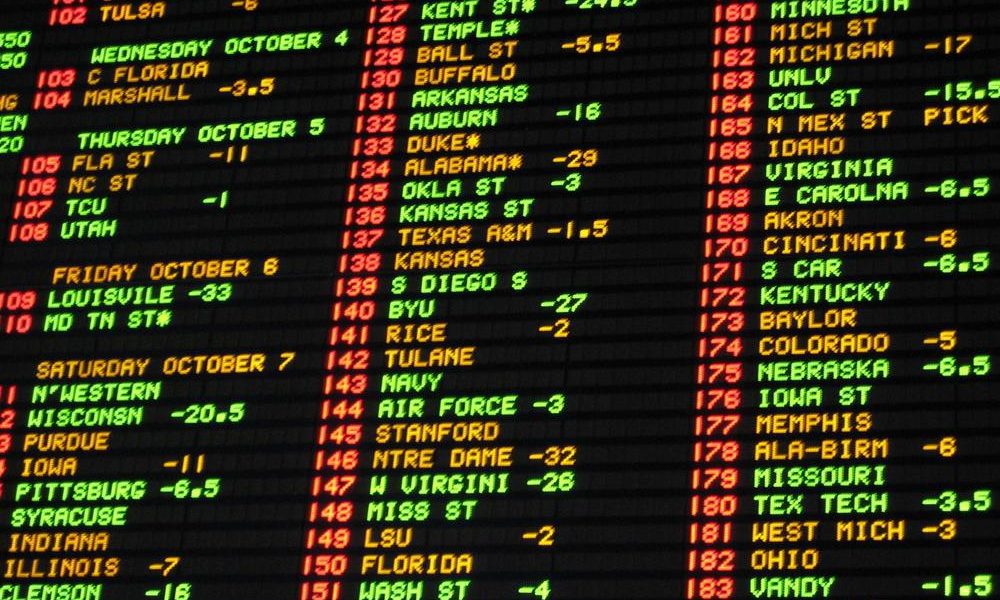As state legislatures continue to ponder gaming expansion, “a majority of these bodies are hitting their home stretch,” declared B Global founder Brendan Bussmann. “With a majority of the sessions heading into Sine Die (adjournment) in or around the end of May, now is the time to get things done.” But, he wrote, experience has taught him that gaming “typically is one of the last bills to get passed during any session, leaving the fun and antics for the end of the circus.”
Complicating matters is a harsher-than-ever partisan divide between political parties clouding the debate, Bussmann says, particularly on bipartisan issues that would include gaming. “We saw this happen with Voter ID in Georgia in 2021 and we’ve seen other legislatures come to a standstill off of social issues in the most recent cycle,” he cited.
The analyst painted a picture of a gaming industry that is moving into largely uncharted territory with respect to revenue, capturing new players and bringing others over from the black market. Bussmann added, “It also faces just as many challenges from an industry that does not always cohesively educate stakeholders on the positives things that it does, while arrows continue to be thrown over advertising and responsible-gaming initiatives.”
He dismissed the American Gaming Association’s March 28 code of conduct for sports betting as “another show of the industry trying to ward off federal intervention.” Such intervention would not only overreach, Bussmann opined, but “likely overkill [state] legislation.”
So far the only new state to adopt sports betting is Kentucky, where a GOP-majority legislature passed it onto to Gov. Andy Beshear (D), who signed it into law within 24 hours of adoption. Similar bills are described as still having a pulse in Vermont, Missouri, North Carolina, and Minnesota. “Other states continue to look at other forms of gaming as well, from casinos to card rooms to keno.”
Bussmann characterized sports betting as an issue that would usually stymie the Bluegrass State solons, hence the push to get it passed and signed into law expeditiously this year. Beshear’s aim is to get the infrastructure up and running as soon as possible, although it appears the onset of football season will be too soon. The sports-betting regime, Bussmann reported, “does not restrict wagering on colleges, sets the legal age at 18, does not require the use of official league data, and sets the tax rate at 14.25 percent.”
Missouri lawmakers faced an obstacle in the form of slot-route-proponent state Sen. Denny Hoskins (R). He tried “to filibuster the sports-betting bill by adding enough ornaments to the Christmas tree that it would fall over on its own weight. However, what was waiting in the end was a resounding rejection of his personally motivated issue on VGTs. … The question that remains is whether the Senate will put up with another hijack by Hoskins or he will reason that his antics have only hurt his own ability to legislate, as opposed to being a ‘champion’ for the cause or merely motivated by self-interests.”
Bussmann is pessimistic that sports betting has the votes in the Missouri Senate to pass. This, he feels, is attributable to casinos being opposed to adding another form of gambling, while gray-market slot routes are allowed to flourish and even proliferate. Bussmann noted dryly that while casinos have fought such routes in other states, such as Pennsylvania, “they became the first to operate them.”
His conclusion? “The illegal market needs to be dealt with and at this point, the best option is to regulate, unless you give law enforcement all of the tools to get these out of the bars, taverns, gas stations, and other establishments.”
The hourglass is also running empty in Minnesota. The biggest hurdle seems to be the House. Part of the problem is legislative add-ons, as well as the fracturing of the state’s horse tracks from the pro-betting coalition. By contrast, the tribes have held firm in their support, Bussmann reports.
On the flip side, “Hope remains strong” for the passage of sports wagering in South Carolina. Bussmann is optimistic, largely because the state Senate does not adjourn until June.
As for the biggest prize on the docket, Texas, the greatest accomplishment so far is that sports betting passed out of a legislative committee. So did casino-enabling legislation. However, that was in the House. The Senate presents a formidable challenge in the form of Lieutenant Gov. Dan Patrick (R), a diehard opponent of gambling.
“In a recent quote, he said there were two votes that he could count for sports betting and zero for casinos. While the support is greater than that, Texas continues to remain a challenge while existing stakeholders are in place,” Bussmann chronicled.
He added that the window of opportunity in the Lone Star State is narrowing. For that reason and the ones mentioned, he found it unlikely that either casinos or sports wagering will be presented to voters for their approval anytime soon.


